Northwestern University is building a new stadium a couple of miles inland, but for the 2024 fall football season, home games will be played on the scrimmage field right on Lake Michigan. They are building massive towering wobbly-looking bleachers with plenty of room beneath for smoking and making out if you miss that sort of thing. It amuses me the way we like to go right up to the beauteous lake and then proceed to ignore it. The campus lot where I park my car each morning has a prime lakefront view, gorgeous if you are an empty car in the eastern parking spaces.
On the lakefill, an artificial construction from 1962, I have been pushed more than once around the walkways in a shopping cart by undergraduates in the Master’s Mile, a competition of the residential colleges that pits each faculty master against each other. It is important not to look at the lake when you are racing around with a faculty member tucked into a shopping cart speeding breakneck. I am known among a certain era of students for screaming, as the cart tipped on hairpin turns, “I would rather live than win.” I’d like this placed on my tombstone.
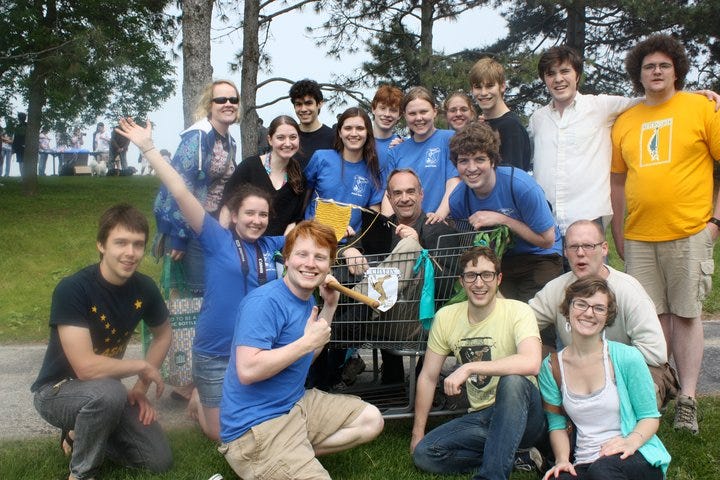
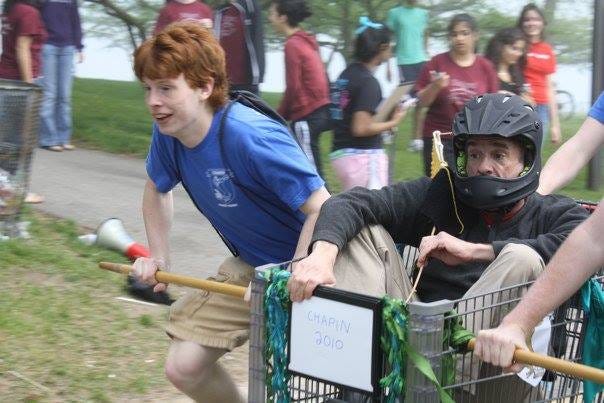
At least my city and university do not fully turn their back to the Great Lake—all roads lead up to it. It has a gravity, this mighty body of freshwater. And when your feet meet the water, you want to do something about it, the way John Cage composed “A Dip in the Lake” in 1978, then the artist in residence at Northwestern:
Cage instructed people at 427 addresses in Evanston and Chicago, a chance-determined number, grouping them into 10 groups of 2, 61 groups of 3, and 56 groups of 4. Performers were then instructed to go to each of the given locations along the shore of Lake Michigan and listen to, perform at, and make recordings of the sounds that are available moving to each location on the sounds that were available along the way and at the final locale. That’s the music. “There is no such thing as silence.”
Students keep painting the rocks that shore up the lakefill. They know that there is an impermanence to those paintings, subject to weather and wildfowl. Even the geese seem to admire the view. The goth guy in my dorm back in the 80s slept out on those rocks, and I met him coming back in the morning as I was heading to class. He had a little trickle of blood running down his temple into his black clothing. “Hey Goth Dave,” I said, “You seem to be bleeding.” Yes, said Goth Dave, “I cut myself.”
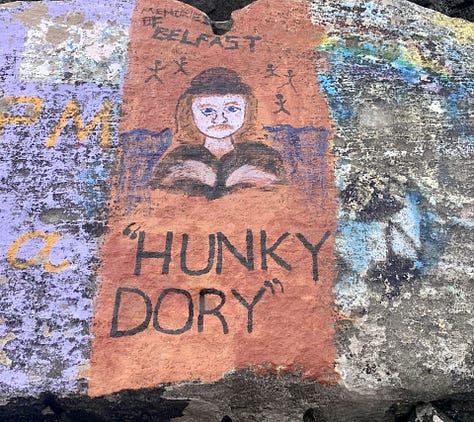
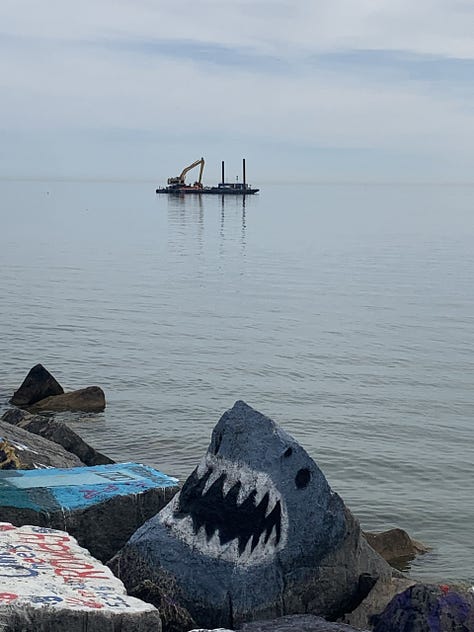
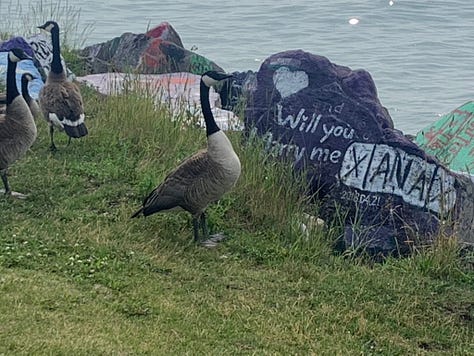
As I walk the dog, who has no aesthetic sense that I understand, I wonder whether we behave with the lake (swimming, paddling), for the lake (an all-night reading of Homer’s Iliad), beside the lake (picnics, sunbathing), against the lake (football fields, parking lots, The Master’s Mile), or at the lake (music compositions, marriage proposals, cutting your forehead), and whether any preposition matters in any given moment. I would, after all, rather live than win.
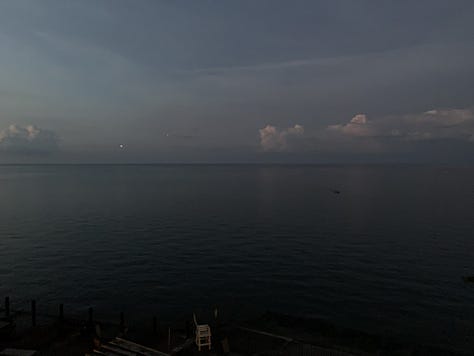
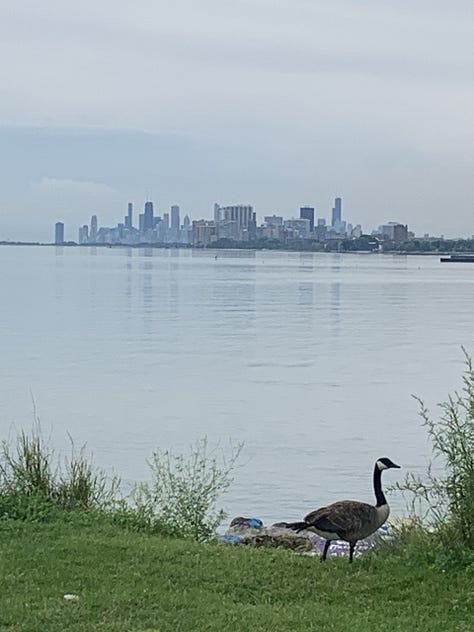
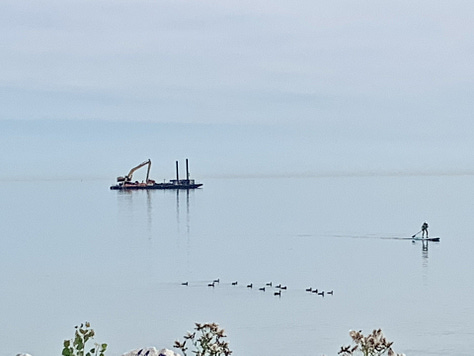

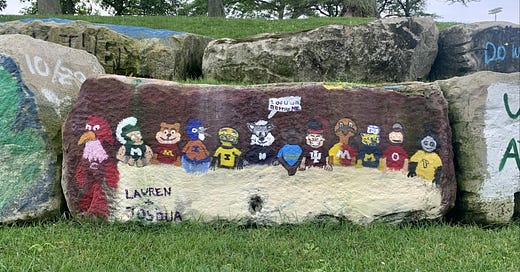



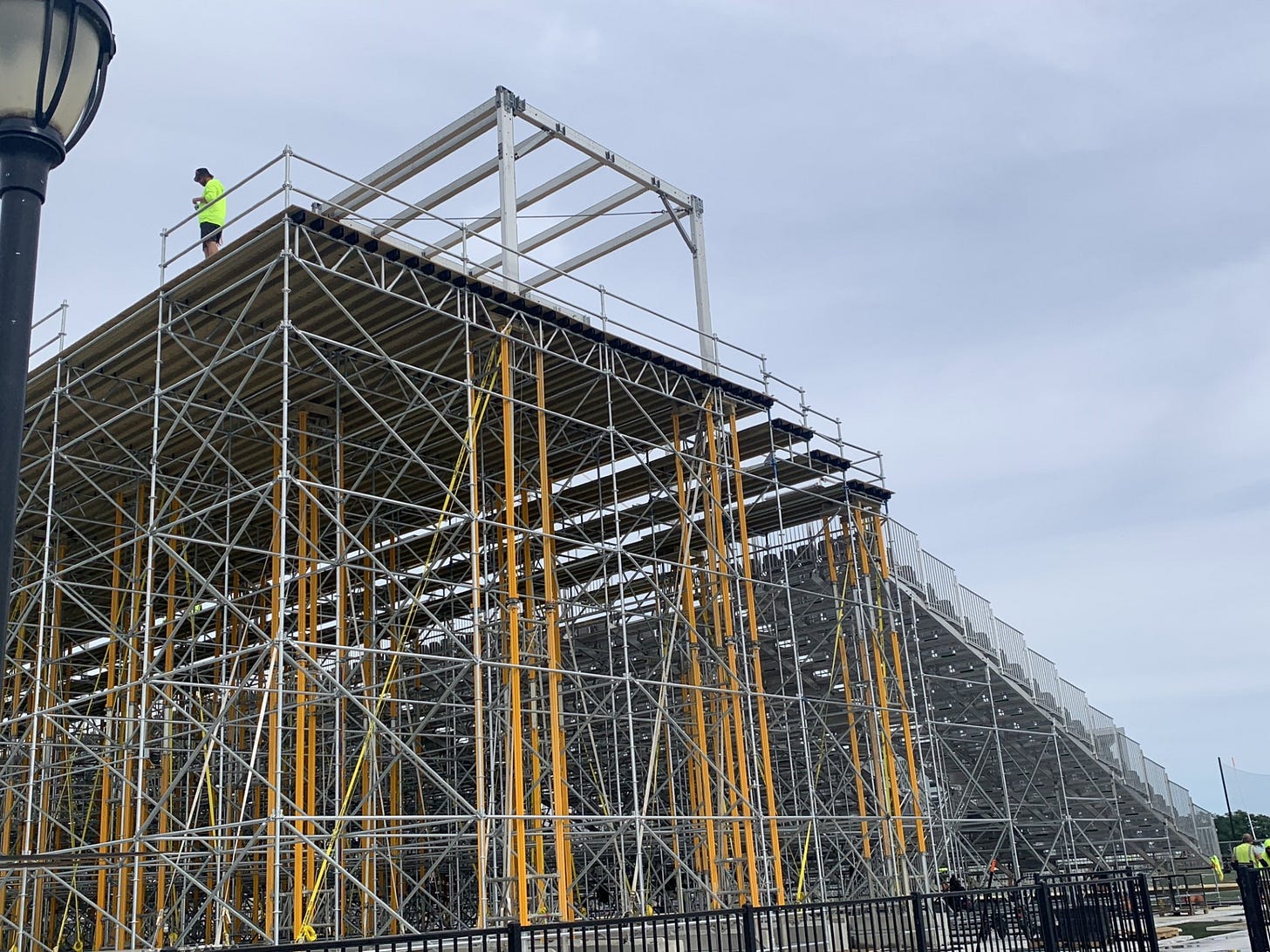
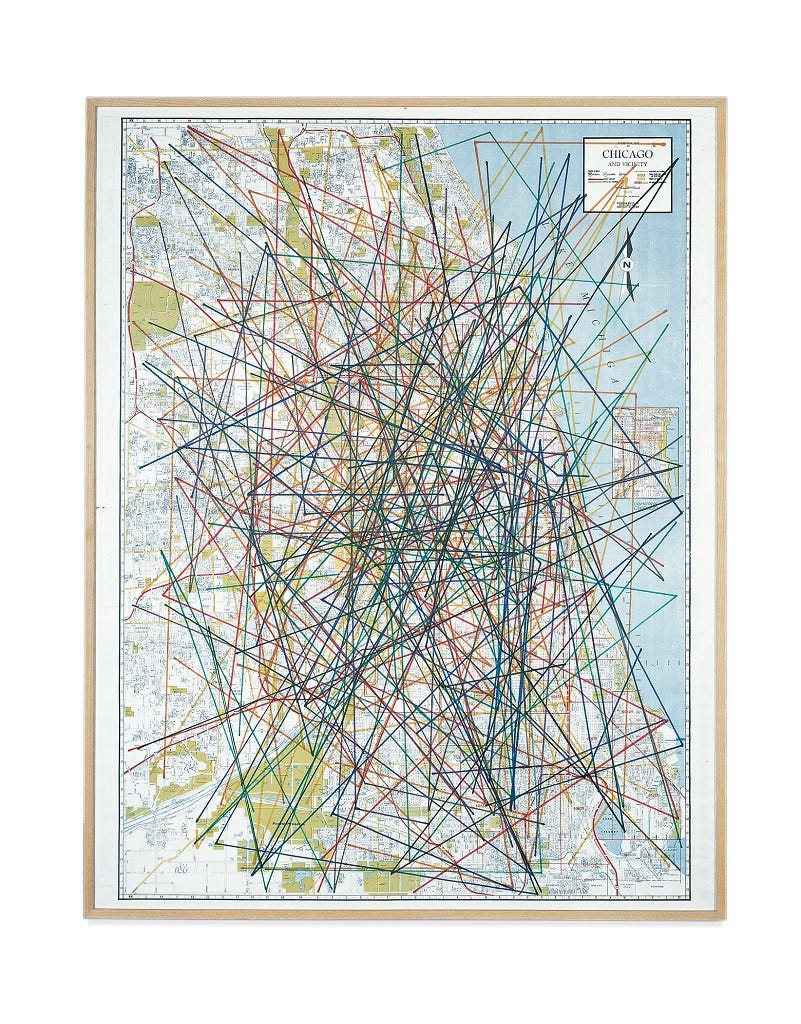
I lived in Chicago for thirty years, & was pretty good at ignoring the lake. I love it deeply & its presence, but whenever I made the pilgrimage to its shore, I knew I would never be "good enough" (maybe that's why I avoided it):
Lesson in survival
Spinning out on turns
That gets you tough
Guru books—the Bible—
Only a reminder
That you're just not good enough —Joni Mitchell
To be able to fold oneself into a shopping cart! I long for that flexibility